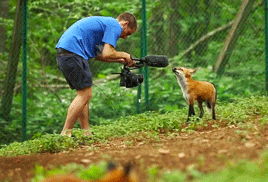Paul Whybrow
Full Member
I’m contemplating recording audiobook versions of my five Cornish Detective novels.
I know that we have narrators on The Colony, so I’m picking your brains for advice. I’ve been looking at microphones for sale. This evening, I opened a newsletter from Yanko Design (worth subscribing to) to see an article on an affordable microphone from Rode:
At just $91, the RODE NT-USB Mini is the the best budget podcasting microphone you can buy | Yanko Design
It’s pricier than the quoted $91. In rip-off Britain traders on eBay and Amazon are asking £109.99, but it looks easy to use and has good reviews.

I live at what used to be one of the noisiest places in Cornwall, during the day, at a petrol station on the flight path to Newquay Airport. In normal times, it’s very quiet after 7.00 p.m. These days it’s silent! I wouldn’t be disturbed by aeroplanes or passing vehicles. My room is compact at 18’ x 12’ with sloping ceilings, so I don’t think I’d need to build a recording booth. But, what do I know?
Will I need sound-absorbing material on the walls, a book stand, a microphone stand or a digital audio workstation to mix and edit?
What can you tell me?

I know that we have narrators on The Colony, so I’m picking your brains for advice. I’ve been looking at microphones for sale. This evening, I opened a newsletter from Yanko Design (worth subscribing to) to see an article on an affordable microphone from Rode:
At just $91, the RODE NT-USB Mini is the the best budget podcasting microphone you can buy | Yanko Design
It’s pricier than the quoted $91. In rip-off Britain traders on eBay and Amazon are asking £109.99, but it looks easy to use and has good reviews.

I live at what used to be one of the noisiest places in Cornwall, during the day, at a petrol station on the flight path to Newquay Airport. In normal times, it’s very quiet after 7.00 p.m. These days it’s silent! I wouldn’t be disturbed by aeroplanes or passing vehicles. My room is compact at 18’ x 12’ with sloping ceilings, so I don’t think I’d need to build a recording booth. But, what do I know?
Will I need sound-absorbing material on the walls, a book stand, a microphone stand or a digital audio workstation to mix and edit?
What can you tell me?







